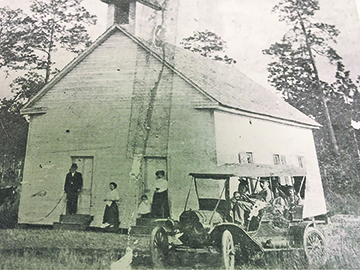Mickey Starling
reporter3@greenepublishing.com
As the twentieth century came into view in Madison County, there were plenty of places to shop and enjoy yourself. Madison boasted of 24 general stores and groceries and four saloons, where a fella could wet his whistle and shoot up the town if he had a hankerin'.
The late Wilbur Rutherford passed on a story to Mrs. Elizabeth Sims about some strange happenings in his grandfather's general store. The elder Rutherford routinely stocked sugar and flour in wooden barrels. Prescribed amounts would be removed to other containers as the items were sold. One day, Rutherford noticed that his sugar barrel seemed unusually low, so he set about to catch the guilty party, but with no success.
After some time had passed, someone was sent under the crawl space of the store for unknown reasons. While they were under the store, they noticed an odd site. The floor directly beneath the sugar barrel had a hole bored through both the floor and the sugar barrel, with the barrel now plugged with a cork. Apparently, some thief with a sweet tooth was draining sugar as often as needed, while remaining undetected. It is unknown whether the crafty crook was ever caught.
As only the good Dr. D.H. Yates was the only person in possession of a motorized vehicle at the time, the roads were still a very busy place — for livestock. Pesky porkers had become such a nuisance, as they rooted about town, that they were banned from the streets in 1902. Some eleven years later, goats, cattle and other four-legged travelers were also prohibited.
As for Dr. Yates, he had been petitioning the city to improve the roads for some time. Had you asked the locals, they would have told you that Yates was driving plenty fast over the existing roads to scare them, their chickens and livestock nearly to death. Yates finally succeeded in securing an ordinance for some road improvements, but it also came with requirements to light the lanterns on all vehicles before traveling after dark. Oil lanterns were the high beams of the day.
The first violator of the new ordinance was Dr. Yates, who was seen leaving an evening church service without having struck a match to his lamps. The kind Marshal, W.A. Dale, quietly approached Yates the next morning and collected a one dollar fine for the infraction.
Information for this article was taken from Elizabeth Sims' book, The History of Madison County, Florida.

